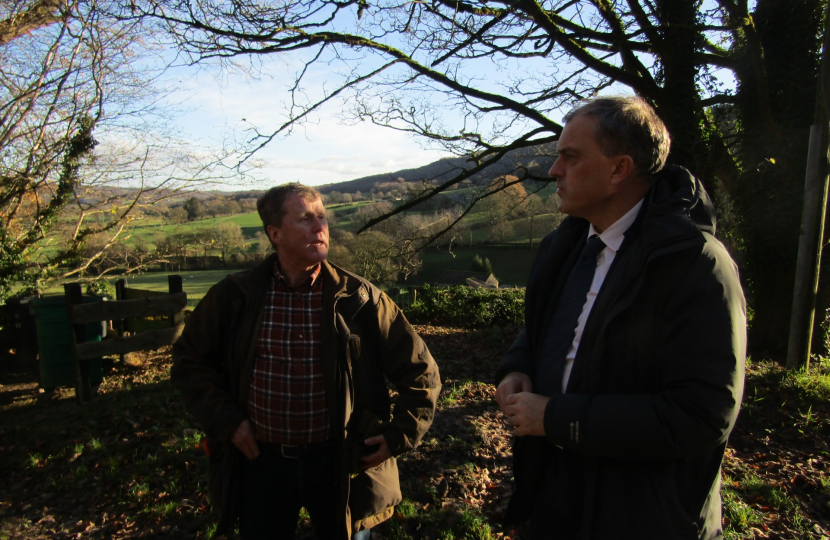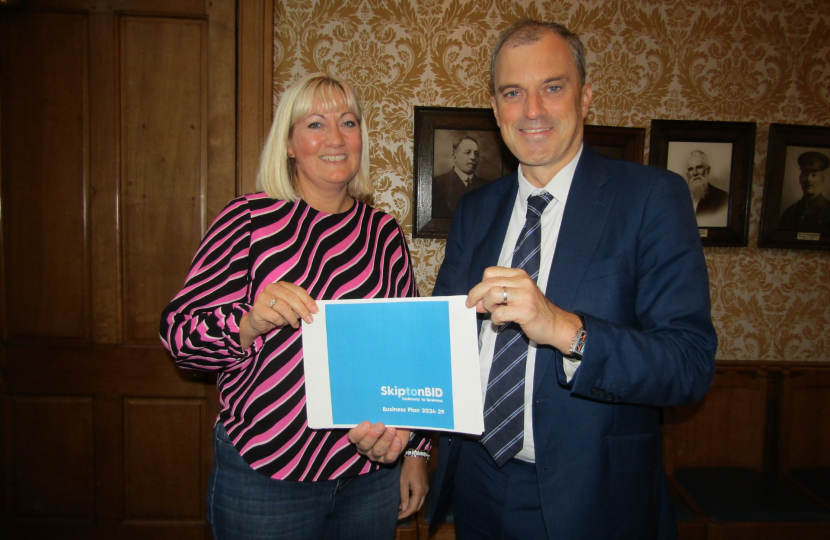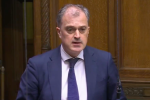November has been a busy month in Westminster and across Skipton and Ripon. It started with the welcome news that 7,000 households across Skipton and Ripon would receive an additional £300 payment to relieve cost of living pressures. Part of the Government’s £94 billion cost of living support package to help vulnerable and low-income families across the country, over eight million households received this second payment, and total household support will reach £900 through 2023-2024. The payments are targeted towards those households most in need, meaning only those in receipt of eligible means-tested benefits, such as Universal credit, Pension Credit, or tax credits, will benefit from the second round of payments. This latest payment builds on those made last year, worth up to £1,200, and form part of the Government’s record financial support for the most vulnerable, worth an average of £3,300 per household.
More good news came from the Transport Secretary, who announced the biggest ever uplift in funding for local road improvements as part of the Government’s new £36 billion Network North transport plan. In total, £991 million of redirected HS2 funding will go to resurfacing roads across Yorkshire and the Humber as part of an £8.3 billion long-term plan to repair over 5,000 miles of roads across the country, saving motorists up to £440 on vehicle repairs. North Yorkshire will receive £314,185,000 over the next ten years to identify local roads requiring repair and deliver immediate improvements, with an initial injection of £4.7 million this financial year, a further £4.7 million in 2024/25, and the rest of the funding allocated through to 2034. According to the RAC, taking action to resurface roads and fix potholes could save drivers up to £440 each in vehicle repairs and maintenance, which helps explain why, according to an AA survey, 96 per cent of drivers see fixing potholes and investing in roads maintenance as a priority.
Crucially, the Chancellor also delivered his Autumn Statement this month, which set out significant and wide-ranging measures to boost the economy, combining the biggest tax cut on investment in modern British history with the largest ever cut to workers National Insurance. In January, the Prime Minister set out five priorities. Three of these were economic: to halve inflation, grow the economy, and reduce debt. Since then, inflation has been halved; the economy has recovered more quickly from the pandemic than anticipated; and debt is on track to fall. Tough decisions have had to be made over the past year to achieve this, but the Government is now able to shift gear and focus on driving economic growth with the biggest package of tax cuts to be implemented since the 1980s – all while getting borrowing, debt and inflation falling. The Chancellor therefore confirmed the Government will:
Cut National Insurance Contributions (NICs) for 27 million working people from 12 per cent to 10 per cent, including 2.3 million workers in Yorkshire and the Humber. From January, this will save the average worker earning £35,000 a year about £450.
Cut and simplify tax for 2 million self-employed workers, abolishing an entire class of NICs and cutting the rate of the NICs top rate from 9 to 8 per cent – saving an average of £350 a year for someone earning £28,000 a year.
Cut business taxes by £11 billion – the biggest in modern times – by permanently enabling businesses to invest for less and offset investments against their tax bills. For every pound a business invests its taxes are cut by up to 25p, generating £14 billion over the next five years.
Cut business rates by freezing the small business multiplier for a fourth consecutive year, benefiting one million businesses, and saving an average shop £1,650 next year.
Extend the Retail, Hospitality and Leisure Relief Scheme for a year, meaning 230,000 properties will share almost £2.4 billion in support. 21,000 businesses in Yorkshire and the Humber will benefit, with a typical independent pub keeping around £11,800 more; a café £5,700 more; and a cinema around £71,200 more.
Boost the National Living Wage (NLW) by nearly 10 percent to £11.44 an hour, benefitting 2.7 million workers, including 250,000 in Yorkshire and the Humber. A full-time worker on the NLW will see their pay increase by over £1,800.
Increase the Local Housing Allowance for 1.6 million families, with an average income boost of £800 for the most vulnerable in 2024/25. 67,000 families in Yorkshire and the Humber will benefit from this.
Protect the Triple Lock and increase pensions by 8.5 per cent, meaning the basic State Pension will be £3,750 higher than in 2010.
Freeze alcohol duty until August and so alleviate pressure on the hospitality sector.
Increase all working age benefits in full by 6.7 per cent, boosting benefit payments for around 5.5 million households by an average of £470 a year.
Provide further Cost of Living Payments to more than eight million households on eligible means-tested-benefits, eight million pensioner households and six million people on eligible disability benefits.
Unlock 40,000 new homes over five years by investing £110 million in areas affected by ‘nutrient neutrality’ rules.
These measures, just some of the 110 announced by the Chancellor in his statement, will help jumpstart the economy after a period of stabilisation following the pandemic, making the UK the best place to start and grow a business, and ensuring that people are able to keep more of their hard-earned money.
Alongside his work in Westminster, Julian has had busy month out and about across the constituency. He continues his regular schedule of help and advice surgeries and has enjoyed meeting local residents, businesses and organisations. Some highlights have included meeting the Manager of Skipton Business Improvement District, Sarah Howson, to get an update on their activities across Skipton and discuss how to further develop their relationship with North Yorkshire Council. It was also an opportunity to find out about their recently published business plan for 2024-2029, with the BID re-balloting levy paying businesses ahead of the ending of their mandate in April next year.
There was also time to drop-in to Fishpond Wood, near Pateley Bridge, to meet Dr Peter and Michelle Brambleby, who run Whitewoods Wellbeing. The scheme offers outdoor therapeutic and educational opportunities for all ages, and Dr Brambleby outlined the health and wellbeing benefits associated with spending time in nature. This was exemplified by a group of schoolchildren visiting that day, who were clearly enjoying themselves making seed bombs, cooking sausages in a fire pit, and drinking hot chocolate!
November was also marked by Remembrance, and Julian was privileged to lay a wreath in Skipton to honour all those who fought for the freedoms we enjoy today. Wreaths were also laid on his behalf in Ripon, Bentham and Pateley Bridge, where poignant services reflected Skipton and Ripon’s strong and proud military heritage.
As ever, if there is anything Julian can help you with, please do not hesitate to contact him at [email protected]




